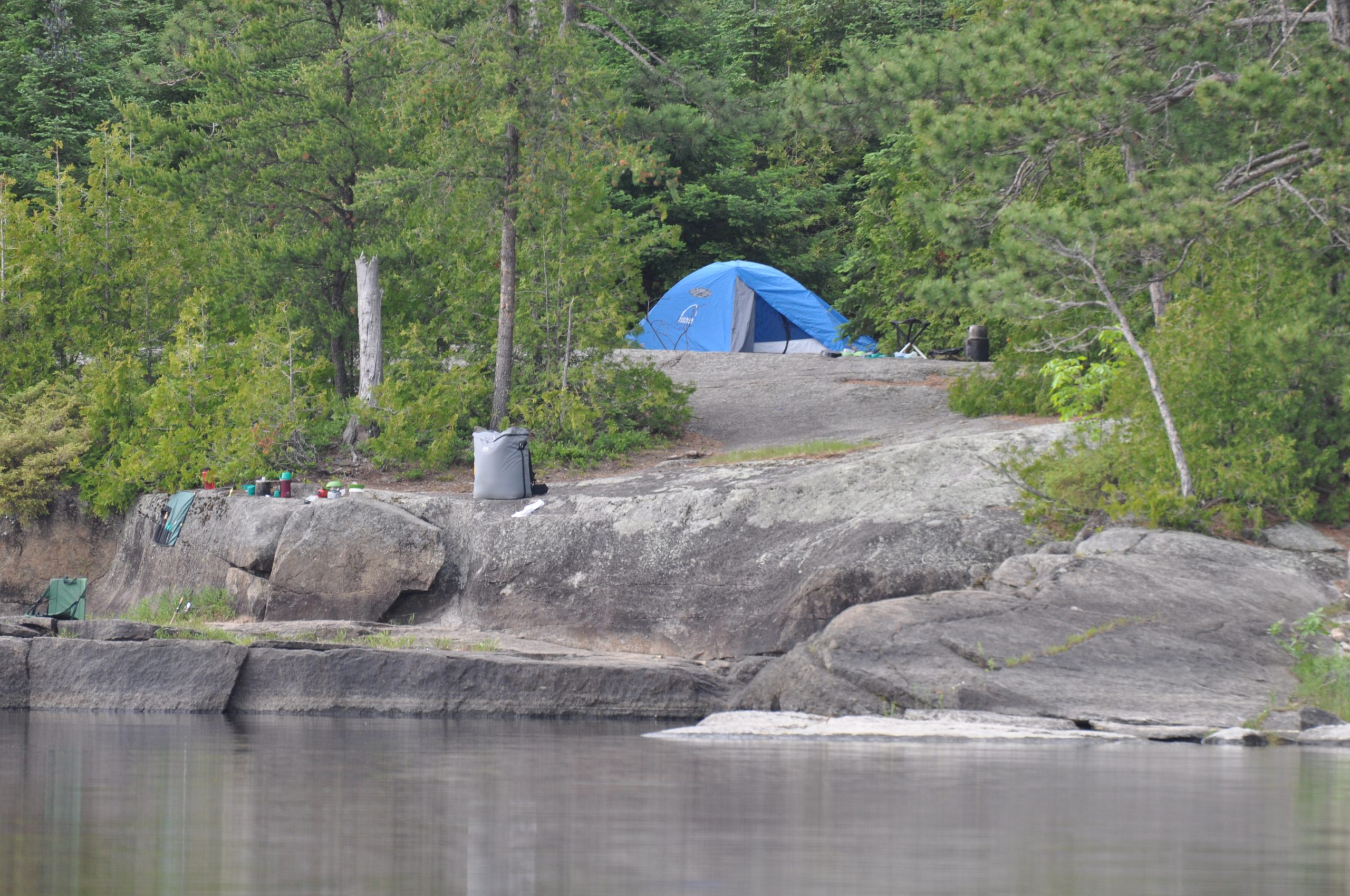
To insure the continued existence of the places and wildlife that inspire us, we must educate ourselves and adopt the skills and ethics that enable us to Leave No Trace. For more information on becoming LNT savvy, visit: www.lnt.org
Plan Ahead & Prepare
- Know area rules and regulations. See BWCAW rules and regulations here.
- Prepare for extreme weather.
- Reduce litter from the source – repackage food into reusable plastic bags or containers and remove excess packaging. Unwrap snack foods at home and bag them in bulk.
Minimize Campfire Impacts
- Use a lightweight stove for cooking.
- When fires are permitted, use an established fire grate and keep fires small.
- Burn all wood and coals to ash, and make sure fire is completely extinguished.
- Collect firewood away from campsites to prevent enlarging and defacing the area and depriving the soil of nutrients. Take only what you need.
Dispose of Waste Properly
- Pack out all trash, leftover food, and litter.
- Deposit human or dog waste in the latrines.
- Wash yourself and dishes with biodegradable soap at least 200 feet from streams or lakes.
- Burning trash in fire grates pollutes and is illegal.
- Personal waste items such as cigarettes, cotton swabs, grease, wipes, paper towels, bandages, diapers, condoms, plastic baggies, and female products (tampons and pads), should always be packed out.
Leave What You Find
- Do not take cultural or historical artifacts or structures.
- Do not introduce or transport nonnative plants, live bait, or animals.
- Do not take rocks, plants, and other natural objects such as antlers.
Travel & Camp on Durable Surfaces
- Durable surfaces include established trails and campsites, rock, gravel, dry grasses, or snow.
- Keep campsites small – stay in areas where vegetation is absent and don’t enlarge the campsites.
- Walk in single file in the middle of the trail even when the trail is muddy.
Using a Hammock?
- Select thick-barked trees that have a trunk diameter of at least 8 inches.
- Do not use birch trees for hammocks. It harms the bark.
- Hang from flat straps which are 1” or greater in width or manufactured for hammock use. Never use rope even if it came with the hammock.
- Only use the trunk of the tree, do not hang straps from branches. Never remove branches from a live or dead standing tree!
- Protect vegetation by hanging your hammock in a place that has already been impacted or has a durable surface such as bedrock below.
Be Considerate of Other Visitors
- Take breaks away from trails, portages, and other visitors.
- Do not take campsites for day use.
- Let nature’s sounds prevail – avoid loud voices and noises.
Respect Wildlife
- Do not follow or approach wildlife.
- Never feed animals. It can damage their health and alters wild behaviors.
- Protect wildlife. Store rations properly.
- Use lead-free tackle.
Disposing of Fuel Cylinders
- Contact your local liquid propane (LP) supplier for information on refilling and recycling empty LP cylinders.
- Consider using a FlipFuel device to condense partially used isobutane canisters, and then properly dispose of empty canisters.
- To prevent waste, consider a stove that uses refillable liquid fuel canisters.
Have any questions about Leave No Trace BWCAW rules and regulations? Please contact us.
